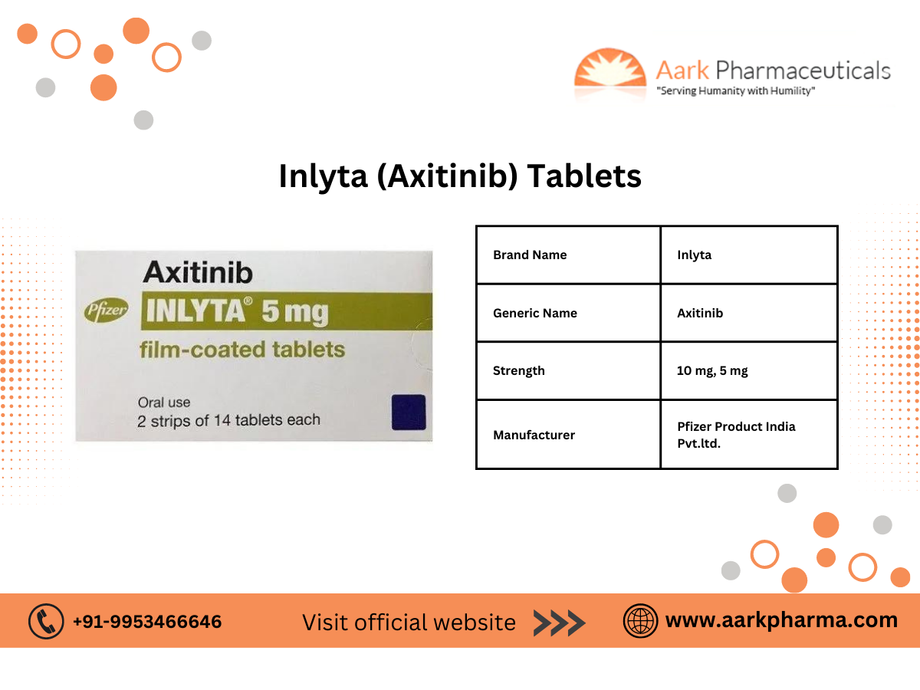Inlyta (axitinib) is a prescription medication used to treat advanced renal cell carcinoma (RCC), which is a type of kidney cancer that has spread to other parts of the body. It is a tyrosine kinase inhibitor that works by blocking the growth and spread of cancer cells.
Uses of Inlyta:
Inlyta is used to treat advanced renal cell carcinoma (RCC) in patients who have not responded to other treatments, such as surgery or immunotherapy. RCC is the most common type of kidney cancer in adults, and it is often resistant to chemotherapy.
Inlyta (axitinib) Tablets can help slow down the progression of the disease and improve the patient's quality of life.
How to Use Inlyta:
Inlyta comes in tablet form, and it is taken orally with or without food. The recommended dose of Inlyta is 5 mg twice a day. The dose may be adjusted based on the patient's response to the treatment and any side effects they experience. It is important to take Inlyta exactly as prescribed by the doctor.
Side Effects of Inlyta:
- Inlyta can cause some side effects, which may include:
- High blood pressure
- Diarrhea
- Nausea and vomiting
- Fatigue
- Loss of appetite
- Hand-foot syndrome (redness, swelling, and pain on the palms of the hands and soles of the feet)
- Headache
- Dry skin
- Constipation
- Difficulty breathing
- Some side effects may require medical attention, so it is important to report any new symptoms or changes to the doctor immediately.
Conclusion:
Inlyta (axitinib) is a medication used to treat advanced renal cell carcinoma (RCC), a type of kidney cancer that has spread to other parts of the body. It is a tyrosine kinase inhibitor that works by blocking the growth and spread of cancer cells. Inlyta is taken orally with or without food, and the recommended dose is 5 mg twice a day.
Although Inlyta is an effective treatment for RCC, it can cause some side effects, which may include high blood pressure, diarrhea, nausea, vomiting, fatigue, and hand-foot syndrome. Some side effects may require medical attention, so it is important to report any new symptoms or changes to the doctor immediately.
In conclusion, Inlyta (axitinib) Tablets is a valuable treatment option for patients with advanced renal cell carcinoma who have not responded to other treatments. It can help slow down the progression of the disease and improve the patient's quality of life. However, it is important to discuss the risks and benefits of Inlyta with the doctor before starting the treatment. The doctor can provide personalized advice based on the patient's medical history, overall health, and other factors.

